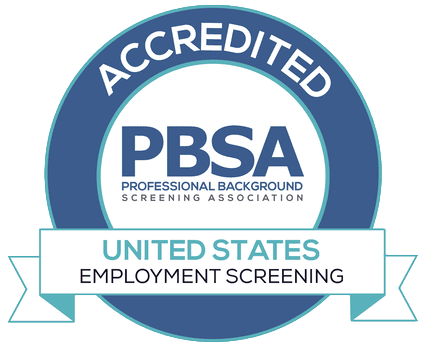In today’s increasingly security-conscious world, schools, organizations and employers are more committed than ever to ensuring the safety and integrity of their environments. Whether you’re hiring new employees, onboarding volunteers, or even considering partnerships, conducting thorough background checks is essential. While every school in the State of PA, for example, is required to conduct ‘Child Protective Clearances’ that include FBI fingerprinting, Child Abuse Clearance (ChildLine), and the Pennsylvania State Police Criminal Record Check (PA PATCH) there are some schools and organizations that realize that there is an often-overlooked component that is equally vital: the traditional background screen.
What Does Each Child Protective Clearance Offer?
- FBI Fingerprinting: This check is often regarded as the gold standard in background screening because it involves a national search of criminal records through fingerprint databases. It provides a broad picture of an individual’s interactions with the criminal justice system across the entire country.
- Child Abuse Clearances: Specifically designed to protect vulnerable populations, this clearance ensures that individuals have not been involved in any form of child abuse or neglect. It’s critical for positions that involve working with children or vulnerable adults.
- PA PATCH: The Pennsylvania State Police Criminal Record Check (often called PATCH) provides a detailed history of an individual’s criminal records within the state. It’s an important tool for organizations looking to understand an applicant’s background on a more localized level.
- Note: Most states have similar requirements, using PA as an example.
These checks are undoubtedly crucial and required, especially for roles involving the care and protection of children and other vulnerable populations. However, relying solely on these forms of screening can leave gaps in the vetting process.
Why Add a Traditional Background Screen?
- Comprehensive Coverage: Traditional background screening provides additional context that fingerprinting and state-specific checks might miss. For example, many crimes or infractions might not make it into the FBI or state databases. Some criminals were not fingerprinted during Covid – creating gaps that traditional background screens may uncover! Also, verifying past employment and education credentials offers a broader understanding of an applicant’s history.
- Cross-Checking Information: It’s not uncommon for discrepancies to appear between different sources of background information. A traditional background screen serves as a valuable cross-reference to confirm the accuracy of FBI and state checks. It ensures that no stone is left unturned and that all potential red flags are identified and addressed.
- Out-of-State Records: While FBI fingerprinting does provide a national overview, PA PATCH is state-specific. A traditional background screen can help cover out-of-state records or activities that might not be captured in the Pennsylvania database, ensuring a more thorough vetting process. Pro Tip: adding a simple National Criminal Database Search is a great supplemental tool to help identify crimes that may have been overlooked, as well as a National Sex Offender Search!
- Beyond Criminal History: While FBI and state checks focus on criminal history, a traditional background screen goes further. It can include identity verification, references, employment history, driving record and history and even bankruptcy/liens and judgements for those working in a financial position, providing a fuller picture of an applicant’s reliability and character.
- Updated and Current Information: With Child Protective Clearances only being required to be updated every 5 years – adding traditional background screens are often more current, as they are typically run close to the time of application. In contrast, databases like the FBI’s might not always reflect the most recent changes, such as expunged records or newly committed offenses.
The Danger of Relying on “Old” Clearances & Why Annual Review is a Good Idea!
Child Protective Clearances in the State of Pennsylvania are valid for 5 years or 60 months. A lot can happen in that period of time and not every crime makes the news! Conducting even a broad National Criminal Database type search annually may help to identify crimes that have happened since the initial clearances were obtained!
Consider this scenario;
- A teacher applies for a job at an Indiana School District – the background check is clear at the time of hire. Teacher is charged with supplying minors with drugs and alcohol while working as a teacher. He gets busted and resigns. This teacher could potentially get hired as a teacher at another district by providing ‘valid’ clearances that were conducted prior to the date of conviction (as long as it hasn’t been more than 5 years), unless the new district requires new clearances be conducted. It is not uncommon for existing clearances to be accepted for new hires!
There are a number of examples of examples just like the one above! A crime committed after the initial clearances could very well not be realized until a new set of clearances are conducted years later!
The Best of Both Worlds
For many schools and organizations, the combination of traditional background screening with the required Child Protective Clearances (FBI fingerprinting, Child Abuse Clearances, and PA PATCH) offers the best of both worlds. It provides a more complete and accurate picture of potential hires or volunteers, ensuring that your organization is both compliant and secure, and goes a long way to #keepkidssafe!
In a world where safety and trust are paramount, taking the extra step to conduct a thorough, well-rounded background check is not just a good practice—it’s a necessity. By layering these checks, organizations can confidently make informed decisions, protecting their interests and the communities they serve.
Want to learn more?
Would you like to learn more about whether or not your current process is enough? Let’s talk! jkerrigan@applicationverification.com or 412-877-8937. Or visit our website at: www.applicationverification.com


